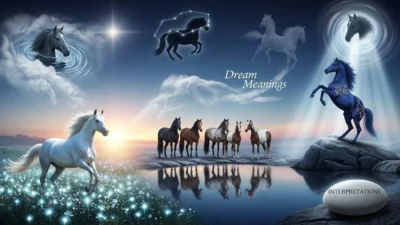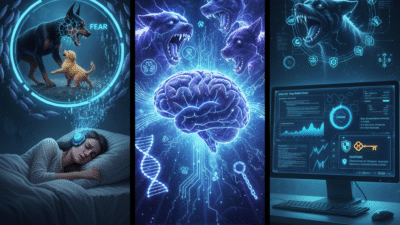Dream scenario meaning refers to the symbolic and psychological interpretation of dreams where you find yourself in a particular situation, setting, or storyline that feels vivid or emotionally charged. In short, dream scenarios often mirror your waking emotions, desires, fears, and subconscious processing of life events. Understanding these dreams can offer profound insights into your inner world, personal growth, and hidden motivations.
Dreams have always fascinated humanity because they blur the line between imagination and reality. Whether you’re flying, meeting a celebrity, getting married, or trapped in a strange world, these dream scenarios feel so real that you wake up wondering, “What was my mind trying to tell me?” Exploring the dream scenario meaning helps decode your subconscious messages — revealing emotional patterns, hidden stressors, or even creative inspiration.
In this article, we’ll dive deep into what dream scenarios symbolize psychologically and spiritually, explore common variations like eating, creating, or sharing in a dream, uncover their cultural and historical symbolism, and end with psychological tips to help you use dream insights for personal growth.
General Meaning and Symbolism of Dream Scenarios
Dreams are deeply personal, yet psychologists and spiritual teachers agree that they serve as a bridge between the conscious and unconscious mind. When you dream of a specific scenario, it’s rarely random — it’s your mind processing unspoken emotions, unsolved conflicts, and inner desires.
According to Carl Jung’s dream theory, each dream scenario reflects archetypes — universal symbols that connect us to our collective unconscious. For example, dreaming of being chased can symbolize avoidance, while dreaming of flying may represent freedom or ambition. Jung believed these scenarios help you integrate hidden aspects of yourself, promoting psychological balance.
From a psychological perspective, the dream scenario meaning depends on your emotional reaction during the dream. Feeling joy suggests emotional fulfillment, while fear indicates unresolved anxiety. For instance:
- Positive dream scenarios (like succeeding, celebrating, or discovering something new) often symbolize growth, confidence, and readiness for change.
- Negative dream scenarios (like being trapped, falling, or failing) can represent self-doubt, guilt, or loss of control in waking life.
Spiritually, many traditions view dreams as messages from higher consciousness or the soul. In this sense, dream scenarios aren’t just random thoughts but divine signals guiding you toward healing or transformation. Dreaming of peaceful scenes may indicate harmony and balance, while chaotic scenarios may reflect spiritual unrest or lessons yet to be learned.
Ultimately, understanding the dream scenario meaning requires combining logic and intuition — analyzing the symbols objectively while also trusting what your heart feels when recalling the dream.
Common Variations of Dream Scenarios and Their Meanings
Dreams come in countless forms, but some recurring dream scenarios appear across cultures. Below are the most common variations and what they typically reveal about your emotional and spiritual state.
Eating in a Dream Scenario
When you dream of eating, it often represents nourishment — not just physical, but emotional or intellectual.
- Positive Meaning: Eating delicious food in a dream can symbolize satisfaction, self-love, and fulfillment. It suggests you’re “digesting” life’s experiences in a healthy way.
- Negative Meaning: If the food tastes bad or you feel disgusted, it might reflect emotional overload, guilt, or unhealthy habits you’re struggling to “swallow.”
Example: Dreaming of sharing a joyful meal with family could symbolize harmony and belonging, while eating alone might point to emotional isolation or unmet companionship needs.
Making or Creating Something in a Dream Scenario
Dreams where you’re building, painting, cooking, or crafting something point to your creative potential and desire to shape your destiny.
- Positive Meaning: Successfully creating something in a dream shows self-confidence and progress. It’s a sign you’re manifesting new ideas or personal growth.
- Negative Meaning: Struggling to finish or breaking what you build may symbolize frustration, self-doubt, or fear of failure.
These dreams often appear when you’re in a transitional phase — changing jobs, starting a relationship, or exploring a new hobby — reminding you of your power to create your own reality.
Sharing or Giving in a Dream Scenario
When your dream involves sharing, gifting, or helping others, it reflects empathy, generosity, and connection.
- Positive Meaning: Giving to others represents emotional openness and balance. It may also reflect gratitude or the joy of nurturing.
- Negative Meaning: Being forced to share or feeling unappreciated could reveal boundary issues or emotional depletion in waking life.
This type of dream scenario encourages you to examine your relationships — are you giving too much or not enough?
Special Occasions: Birthday or Wedding Dream Scenarios
Dreaming of birthdays, weddings, or celebrations is one of the most powerful symbolic dream scenarios.
- Birthday Dream Scenario Meaning: Represents renewal, personal milestones, or self-appreciation. It may also symbolize your desire to be recognized and celebrated.
- Wedding Dream Scenario Meaning: Weddings often symbolize union — not just romantic, but the merging of different parts of yourself.
- Positive: Indicates harmony, commitment, or the start of a new chapter.
- Negative: If the dream wedding feels wrong or chaotic, it could signal doubts about a decision or fear of commitment.
Real-Life Case Example
Consider “Sara,” a 29-year-old graphic designer who repeatedly dreamed of missing her own wedding ceremony — running late, forgetting her dress, or finding the wrong venue. Upon reflection, she realized the dream mirrored her waking anxiety about a major life decision: launching her own freelance business. The wedding symbolized commitment — not to another person, but to her own independence. Once she embraced that insight and moved forward with confidence, the recurring dream stopped.
This example illustrates how dream scenario meaning often reflects inner conflict or growth potential hidden beneath daily stress.
Cultural and Historical Symbolism of Dream Scenarios
Across history, cultures have treated dreams as sacred messages. Understanding the dream scenario meaning in this context reveals how universal these symbols truly are.
Ancient Civilizations
- Egyptian and Mesopotamian texts viewed dream scenarios as divine prophecies, recorded by priests and interpreted for kings. Dream temples in Egypt were built to receive messages from gods during sleep.
- Greek philosophers, like Aristotle, believed dream scenarios were reflections of physiological and psychological conditions, while others like Artemidorus wrote extensive guides to interpreting dreams.
Religious Perspectives
- In Christianity, dream scenarios often carry moral or spiritual lessons — think of Joseph’s biblical dreams guiding him to safety.
- In Islamic dream interpretation, a “ru’ya” (true dream) is seen as one of the forty-six parts of prophecy, offering guidance, warnings, or spiritual comfort.
- In Hinduism, dreams reflect karma and spiritual progress, serving as glimpses into past lives or future lessons.
Etymology and Symbolic Roots
The word “dream” originates from the Old English drēam, meaning “joy” or “music,” implying that early societies saw dreams as harmonious or divine messages. The term “scenario” comes from Latin scaenarium, meaning “scene” — emphasizing the performative and symbolic nature of dream narratives.
Modern Culture
Today, dream scenarios feature in literature, films, and art as metaphors for identity and transformation. From Inception’s layered dream worlds to dream therapy in psychology, the fascination with dream scenario meaning continues to evolve — bridging science, spirituality, and creativity.
Psychological Insights and Personal Growth
Understanding the dream scenario meaning isn’t just about decoding symbols — it’s about using them for self-awareness and emotional healing. Here are a few evidence-based practices inspired by dream psychology and mindfulness:
1. Keep a Dream Journal
Writing down your dreams immediately upon waking helps capture details that fade quickly. Note emotions, symbols, and themes. Over time, patterns will emerge — like recurring settings or people — revealing deeper subconscious stories.
2. Practice Mindfulness Before Sleep
Calming your mind through breathing or meditation allows your subconscious to express itself more clearly. When you’re emotionally balanced, your dreams become less chaotic and more revealing.
3. Reflect Without Judgment
Avoid labeling dreams as “good” or “bad.” Instead, ask: What is this dream trying to tell me? Seeing dreams as messages rather than mysteries can transform anxiety into awareness.
4. Take Action in Waking Life
If a dream scenario highlights fear, procrastination, or emotional distance, use that knowledge constructively. Change routines, communicate your feelings, or make long-delayed decisions. Dream interpretation is most valuable when it inspires real growth.
In essence, dream scenarios act as mirrors — showing what you may not yet admit to yourself but are ready to face.
FAQs About Dream Scenario Meaning
1. What does a dream scenario mean in general?
A dream scenario symbolizes your subconscious emotions, desires, or fears. Each scenario acts as a story your mind creates to help you process life experiences and unresolved feelings.
2. Why do some dream scenarios feel so real?
Vivid dreams often occur during the REM stage of sleep when brain activity mimics waking consciousness. Emotional or meaningful experiences trigger realistic dream scenarios that feel immersive.
3. Can dream scenarios predict the future?
While most dreams reflect current emotions rather than literal predictions, some people experience intuitive dreams that symbolically foreshadow future events. These are best understood as insights, not prophecies.
4. What does it mean if I keep dreaming the same scenario?
Recurring dream scenarios suggest unresolved issues or habits. Your subconscious repeats the message until you address it consciously — through reflection, therapy, or lifestyle change.
5. How can I interpret my dream scenario accurately?
Focus on your emotions during the dream, note recurring symbols, and connect them to current life situations. Personal context always outweighs generic interpretations.
6. Is dreaming of others in a scenario meaningful?
Yes. People in your dreams often represent aspects of yourself — their traits may highlight qualities you admire, reject, or need to integrate.
Conclusion
Dreams are not random — they are your subconscious speaking in stories and symbols. Understanding the dream scenario meaning allows you to decode emotions, gain clarity, and foster self-growth. Whether your dream involves celebration, struggle, or surreal imagery, every scenario holds a message about your current path and inner evolution.

Sophia Hayes is an expert in dream psychology and subconscious symbolism with over 10 years of experience in spiritual research and metaphysical sciences. Her passion lies in helping readers unlock the hidden messages within their dreams to improve emotional healing and personal growth. Through her deep understanding of spiritual symbolism, Sophia provides insightful, research-based interpretations that bridge science and spirituality. At DreamingSign.com, she shares transformative guidance to help individuals understand their dreams and connect with their higher selves.




